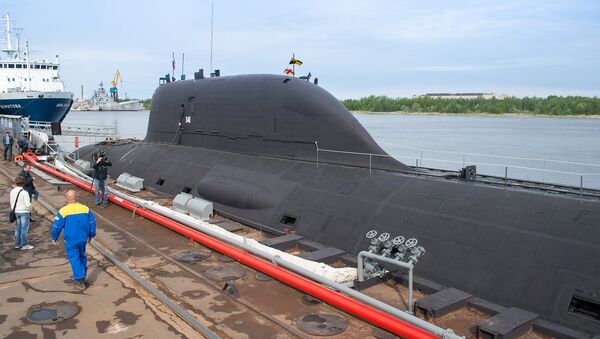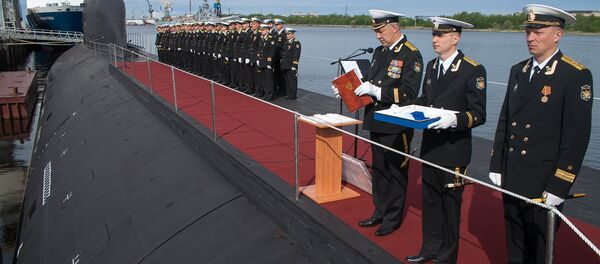“The lightweight and better quality tiles we are now making in Cheboksary boast better noise absorbing qualities than their Western analogues. Moreover, the use of high technology will make their production less labor consuming and, therefore, cheaper,” Techmash’s CEO Sergei Rusakov said.
The new material will be primarily used on Borei and Yasen-class fourth generation nuclear missile submarines and Russia’s latest diesel-powered Lada-class subs.
Meanwhile, Russia’s fifth-generation submarines will use anti-sonar composite materials to hide them from enemy detection systems.
“The structure and composition of these new multilayer composite materials will significantly reduce the sonar signals reflected from submarine, isolate working mechanisms from vibrations, and so on,” Valery Polovinkin, an adviser to the general director of the Krylov State Research Center, told Izvestia.
He also said that, due to the composite material’s high internal loss factor, enemy sonar would simply be unable to pick up the required level of signal while the material’s sound absorption characteristics would minimize the spread of vibrational energy.
The use of composite materials would reduce the weight of the submarine’s structures, increase its reliability and reduce operating costs since composites don’t corrode and need no paint.



